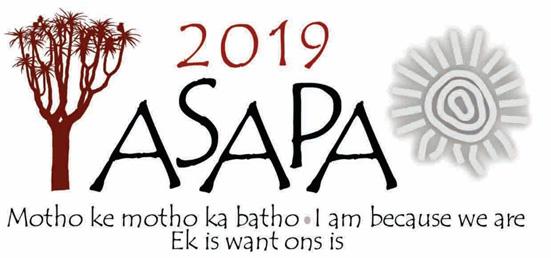
It will be Kimberley’s pleasure to welcome ASAPA delegates to the 2019 Biennial Conference in this city.
Twice before, in 1990 and 2004, we hosted ASAPA’s predecessor, the Southern African Association referred to as ‘SA3’. In the intervening years ASAPA has grown and changed, and so has Kimberley. And whereas the McGregor Museum was our venue previously, the city’s latest boast, the new Sol Plaatje University, is where we will assemble for ASAPA 2019. We look forward to having you experience this space, where heritage makes for a central thread in the university’s curriculum, and local pasts are reflected in the very fabric of its buildings.
Sol Plaatje University’s BA programme includes a three-year elective course in archaeology, inaugurated in 2017. This is more than appropriate in a region well known for its archaeological traces which span much of human history. Moreover, the opening decades of the present century have seen a florescence of research in Northern Cape sites and landscapes, so that new perspectives on Wonderwerk Cave, Kathu, Canteen Kopje, Driekopseiland, and other localities, with some of the issues surrounding them, will feature variously in the programme and in the itinerary of the post-conference excursions.
The conference theme of Motho ke motho ka batho (Ek is want ons is/I am because we are) – expressed in three of the languages spoken in the Northern Cape Province – seeks, through this kernel of African philosophy, this relational way of being, to foreground indigenous heritage in African archaeology, and to acknowledge local viewpoints in archaeological practice. Conference deliberations in plenaries and parallel sessions would address specific spheres of interest concerning Southern African pasts, sharing a wide range of current work, and engaging with the issues and debates, no doubt, attendant thereto.
It is you who will make this conference. We look forward to signing you up!
Date: 3 - 5 July 2019
Venue: Sol Plaatje University & McGregor Museum, Kimberley
Disclaimer: Any views expressed by individuals and organisations are their own and do not in any way represent the views of The Heritage Portal.
